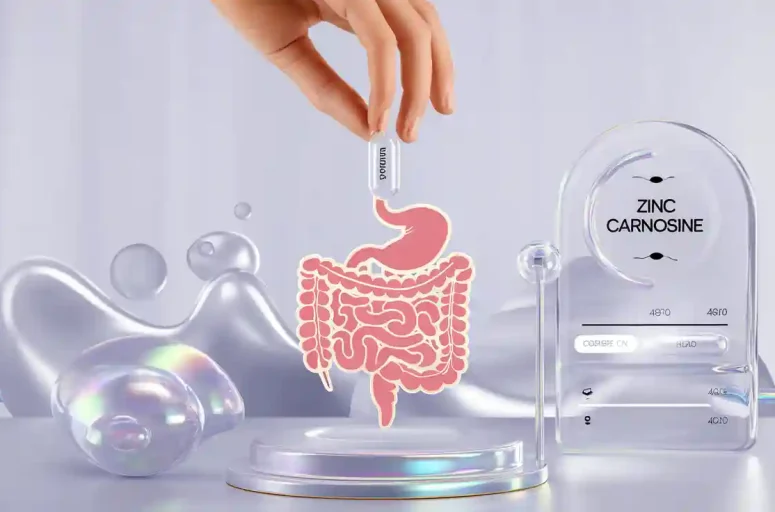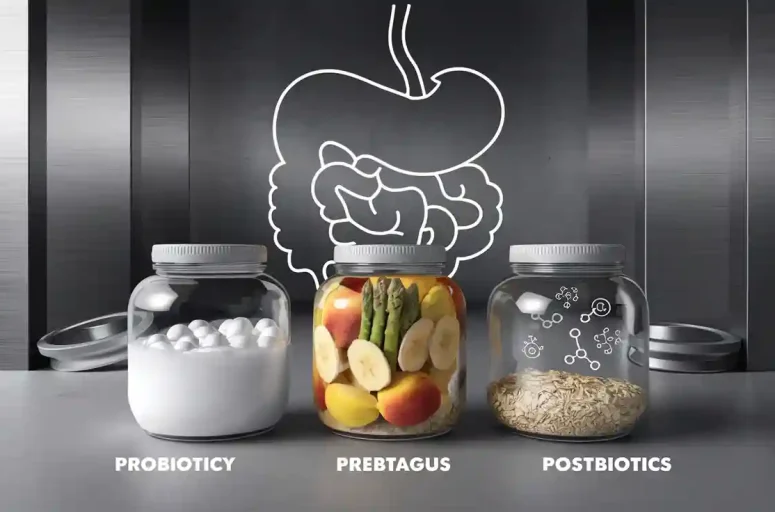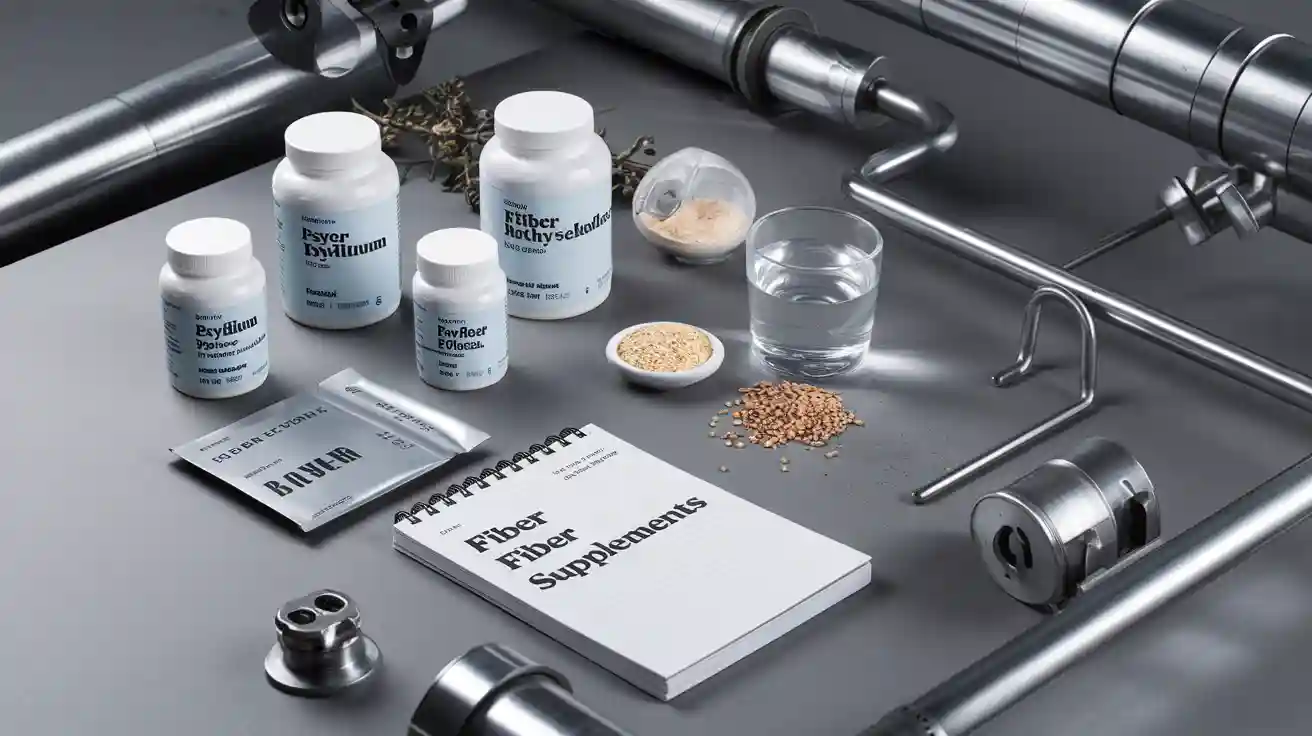
You may wonder if taking a fiber supplement every day is safe. Most fiber supplements have a strong safety record for regular use. Many people use a fiber supplement to manage constipation, support digestive health, or help with cholesterol. You can choose from different fiber supplement options, such as psyllium or methylcellulose, to fit your needs. If you want to feel more comfortable and support your health, adding fiber to your routine can help. Remember, supplements like these work best when you listen to your body and adjust as needed.
Key Takeaways
Most fiber supplements like psyllium and methylcellulose are safe for daily use when started slowly and taken with plenty of water.
Psyllium is the most effective fiber supplement for relieving constipation and also helps lower cholesterol and control blood sugar.
Different fiber types offer unique benefits; gel-forming fibers support digestion and heart health, while others like inulin feed good gut bacteria.
Choose fiber supplements based on your health goals, digestive sensitivity, and any allergies by carefully reading product labels.
Start fiber supplements with a low dose and increase gradually to reduce side effects like gas and bloating.
Drinking enough water daily is essential to help fiber work well and prevent digestive discomfort.
Pay attention to your body’s response and adjust your fiber intake if you experience persistent discomfort or changes in bowel habits.
Fiber supplements support gut health, weight management, and overall well-being when used properly alongside a healthy diet.
Fiber Supplements Safety and Effectiveness
Daily Use Safety
You can feel confident about using a fiber supplement every day. Most fiber supplements, including psyllium, methylcellulose, and inulin, have a strong safety record. Over 24 clinical studies have tested psyllium in more than 1,500 people taking 6–15 grams per day. These studies show that daily fiber intake from supplements is safe for most people. You will likely notice that fiber supplements are well-tolerated and rarely cause serious problems.
Tip: Start with a low dose and increase slowly. This helps your gut adjust and reduces the chance of mild side effects.
The most common side effects you might experience include gas, bloating, belching, or a feeling of fullness. These symptoms usually stay mild or moderate and often decrease as your body gets used to higher daily fiber intake. Only a small number of people stop using fiber supplements because of these symptoms. If you have a history of digestive diseases, trouble swallowing, or other medical conditions, you should talk to your doctor before starting a new fiber supplement.
Effectiveness for Constipation
If you struggle with constipation, a fiber supplement can help you achieve regular bowel movements and support bowel regularity. Psyllium stands out as the most effective option. Randomized controlled trials show that psyllium improves stool frequency and consistency better than placebo. When you use psyllium at about 10 grams per day, you will likely see softer stools and more regular bowel movements. Psyllium even works better than some stool softeners, making it a top choice for constipation relief.
Methylcellulose is another fiber supplement you might consider. It is gentle on your gut and less likely to cause gas or bloating. However, there are not enough high-quality studies to prove that methylcellulose works as well as psyllium for constipation. You may still find it helpful, especially if you have a sensitive digestive system.
Note: For best results, make sure you drink plenty of water with your fiber supplement. This helps the fiber work properly and supports bowel regularity.
Other Health Benefits
You can gain more than just constipation relief from daily fiber intake. Psyllium and other gel-forming fiber supplements offer extra health benefits. Clinical studies show that psyllium lowers LDL cholesterol by 6–24% and total cholesterol by 2–20%, especially if you have high cholesterol. If you take cholesterol-lowering medications, adding psyllium can boost their effects and may even let you use a lower dose.
Psyllium also helps control blood sugar. Long-term studies show that people with type 2 diabetes or metabolic syndrome who use psyllium daily see lower fasting blood glucose, insulin, and hemoglobin A1c levels. These improvements in blood sugar and cholesterol support your overall gut health and reduce your risk of heart disease.
You will not see these benefits with all fiber supplements. Only gel-forming fibers like psyllium and β-glucan have proven effects on cholesterol and blood sugar. Low-viscosity fibers, such as inulin, do not show the same results. By choosing the right fiber supplement, you can support bowel regularity, improve gut health, and enjoy a range of health benefits.
What Are Fiber Supplements?
Types of Fiber Supplements
You can find many types of fiber supplement on the market. Most fiber supplements fall into two main categories: conventional and organic. Conventional fiber supplement options are more common because they cost less and you can find them in most stores. Organic fiber supplements are becoming more popular as people look for natural and sustainable choices.
You will also see fiber supplement products classified by the types of fiber they contain. The most common types of fiber include psyllium husk, guar gum, inulin, wheat bran, and acacia fiber. Each type supports different digestive needs. Some fiber supplement products contain soluble fiber, which dissolves in water and forms a gel. Others contain insoluble fiber, which adds bulk to your stool and helps food move through your digestive tract. Both types of fiber play important roles in your diet and support healthy fiber intake.
Tip: If you want to support regularity, look for a fiber supplement with both soluble and insoluble fiber.
Why People Use Fiber Supplements
You may wonder why so many people choose a fiber supplement. Most people in the United States do not get enough dietary fiber from their diet. Over 90% of women and 97% of men fall short of the recommended daily fiber intake. This gap makes it hard to reach the benefits of a high-fiber diet through food alone.
A fiber supplement helps you bridge this gap. You might use a fiber supplement to improve bowel regularity, relieve constipation, or manage symptoms of irritable bowel syndrome. Some people take fiber supplements to lower cholesterol, control blood sugar, or feel fuller after meals. Others use them to support weight loss or improve insulin sensitivity. If you struggle to eat enough fiber-rich foods, a fiber supplement offers a simple way to boost your daily fiber intake.
Many people find that adding a fiber supplement to their routine helps them feel better and supports their overall health.
Forms of Fiber Supplements
You can choose from several forms of fiber supplement to fit your lifestyle. The most popular form is the capsule. Capsules are easy to swallow, have no taste or odor, and let you measure your dose precisely. Plant-based capsules are available if you follow a vegan or clean-label diet. Capsules also work well if you want to take your fiber supplement on the go.
Other forms include powders, chewable tablets, and gummies. Powders mix easily with water or juice and let you adjust your fiber intake. Chewable tablets and gummies offer a convenient and tasty option, especially if you do not like swallowing pills. Each form supports different preferences and makes it easier to add fiber to your daily routine.
If you want to increase your fiber intake but struggle with high fiber foods, a fiber supplement in capsule or powder form can help you meet your goals.
Comparing Fiber Supplement Types
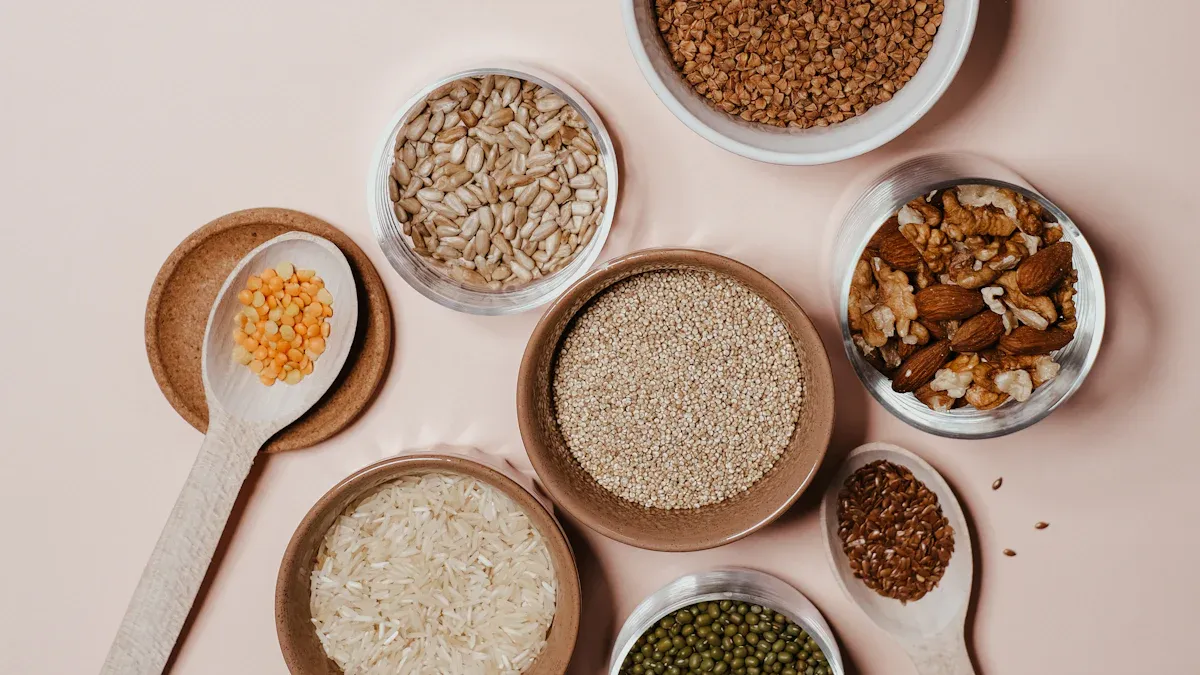
You have many options when choosing a fiber supplement. Each type has unique properties that affect how it works in your body. The table below compares the solubility, fermentability, and gel-forming ability of common fiber supplements. These features help you decide which one fits your needs best.
Fiber | Solubility | Fermentability | Viscosity & Gel Formation |
|---|---|---|---|
Psyllium | Mixed (approx. 70% soluble in husk, insoluble in seeds) | Non-fermentable | Viscous, gel-forming |
Methylcellulose | 100% soluble | Non-fermentable | Viscous, gel-forming |
Inulin | 100% soluble | Fermentable | Viscous, non-gel-forming |
Wheat Dextrin | 100% soluble | Fermentable | Non-viscous, does not thicken |
Calcium Polycarbophil | 100% insoluble | Non-fermentable | Holds water well, gels in gut despite insolubility |
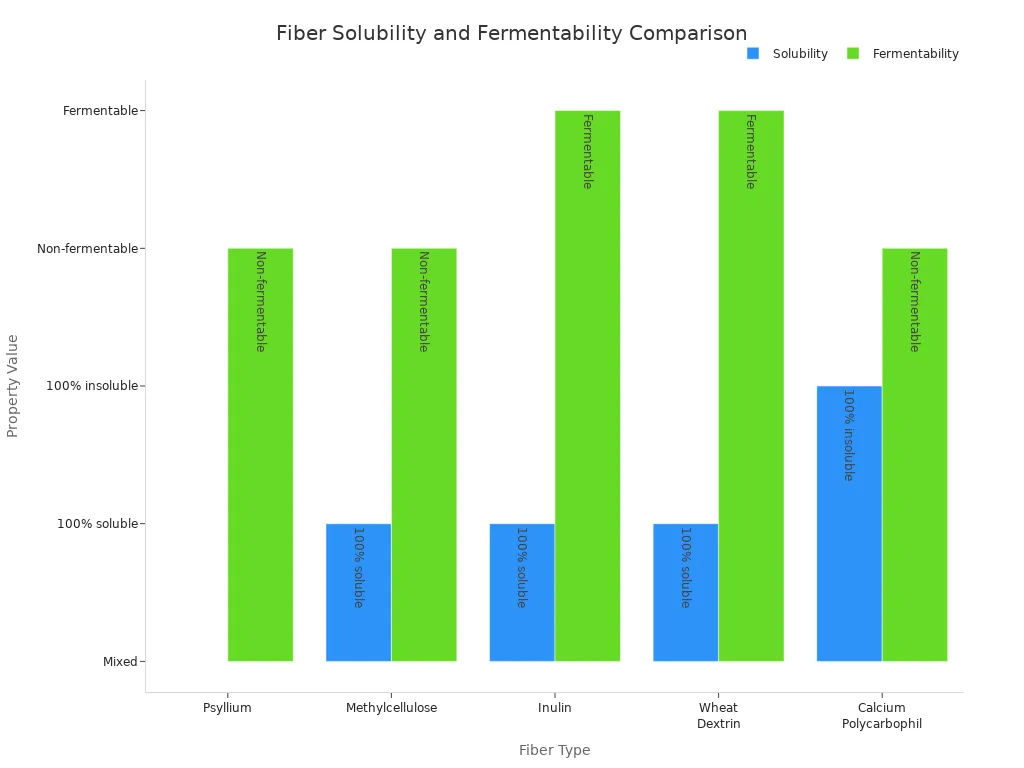
Psyllium
Benefits
Psyllium stands out among fiber supplements because it contains both soluble fiber and insoluble fiber. This unique mix helps it form a gel in your gut, which softens and bulks up your stool. You get several health benefits from psyllium. It can help regulate your bowel movements, making it easier to manage constipation. Meta-analyses of clinical trials show that psyllium increases stool output and softens stools for people with chronic constipation. You also support your gut health because psyllium helps balance your gut bacteria and reduces inflammation. The American College of Gastroenterology recommends psyllium as the best isolated fiber supplement for irritable bowel syndrome (IBS).
Best Uses
You should choose psyllium if you want a fiber supplement that works for both constipation and diarrhea. It acts as a bowel regulator by absorbing water and forming a gel, which normalizes stool consistency. If you have IBS, psyllium is the only isolated fiber recommended by experts. You also benefit from psyllium if you want to lower cholesterol or improve blood sugar control. For best results, use 20–25 grams per day and drink plenty of water.
Side Effects
Most people tolerate psyllium well, but you may notice mild gas or bloating when you first start. These symptoms usually fade as your body adjusts. Rarely, some people experience allergic reactions or trouble swallowing. Always take psyllium with enough water to prevent choking or blockage.
Methylcellulose
Benefits
Methylcellulose is a fully soluble fiber supplement that does not ferment in your gut. This means it is less likely to cause gas or bloating compared to other types of fiber. Clinical studies show that methylcellulose normalizes bowel movement frequency and stool consistency. About 61% of people with constipation report symptom relief after using methylcellulose. You can use it safely even if you have colonic diverticular disease.
Best Uses
You may prefer methylcellulose if you have a sensitive digestive system or want to avoid extra gas. It works well for both chronic and occasional constipation. Methylcellulose forms a gel in your gut, which helps bulk up your stool and makes it easier to pass. You can use it at any age, and it works for both men and women.
Side Effects
Methylcellulose rarely causes side effects. You might notice mild bloating or a feeling of fullness, but these symptoms are uncommon. Because it does not ferment, you are less likely to experience gas. Always take methylcellulose with enough water to help it work properly.
Inulin
Benefits
Inulin is a fully soluble fiber supplement that acts as a prebiotic. This means it feeds the good bacteria in your gut. Studies show that inulin increases the number of beneficial bacteria like Bifidobacterium and Lactobacillus. Inulin also helps improve your intestinal barrier and reduces inflammation. You may see improvements in gut health and immune function when you use inulin regularly.
Best Uses
You should consider inulin if you want to support your gut microbiome. Inulin works well for people who want to boost their digestive health and increase beneficial bacteria. It is also a good choice if you want to add more soluble fiber to your diet. Inulin may help with mild constipation, but it is not as effective as psyllium or methylcellulose for severe cases.
Side Effects
Some people experience gas, bloating, or mild discomfort when they start taking inulin. These symptoms happen because inulin ferments in your gut. Start with a low dose and increase slowly to help your body adjust. If you have IBS or a sensitive stomach, you may want to choose a different fiber supplement.
Wheat Dextrin
Benefits
Wheat dextrin is a type of soluble fiber made from wheat starch. You may find it in many popular fiber supplements. This fiber dissolves completely in water and does not form a gel. Because of its unique structure, wheat dextrin is easy to mix into drinks or food. It helps you increase your daily fiber intake without changing the taste or texture of your meals.
One of the main benefits of wheat dextrin is its gentle effect on your digestive system. Clinical studies show that wheat dextrin is well-tolerated, even if you have a sensitive stomach. Unlike some other soluble fibers, wheat dextrin does not usually cause significant gas or bloating. If you start with a higher dose, you might notice a mild increase in gas, but this effect fades as your body adjusts. Wheat dextrin also supports the growth of healthy gut bacteria, which can improve your overall digestive health.
Best Uses
You should consider wheat dextrin if you want a fiber supplement that is easy to use and gentle on your gut. It works well for people who need to boost their dietary fiber but want to avoid discomfort. Wheat dextrin is a good choice if you have a sensitive digestive system or if you are new to fiber supplements. You can add it to water, juice, or even sprinkle it on food.
Wheat dextrin does not form a gel, so it does not provide the same stool-bulking effect as some other soluble fibers. It is not the best option if you need help with constipation. Instead, you can use it to support your daily fiber intake and promote a healthy gut environment.
Wheat dextrin is suitable for daily use and rarely causes digestive upset, making it a practical choice for many people.
Side Effects
Most people tolerate wheat dextrin very well. You may notice mild gas or abdominal sensations when you first start, especially at higher doses. These symptoms usually go away with regular use. Clinical data show that wheat dextrin does not cause significant abdominal symptoms or negative effects on bowel habits. If you have a wheat allergy, you should avoid this fiber supplement.
Calcium Polycarbophil
Benefits
Calcium polycarbophil is a synthetic fiber supplement that acts like insoluble fiber in your gut. It absorbs water and swells, which helps soften your stool and makes it easier to pass. This fiber does not ferment, so it does not cause gas or bloating. Clinical trials show that calcium polycarbophil improves constipation symptoms and increases bowel movement frequency. It also helps people with irritable bowel syndrome who need regularity.
Best Uses
You may choose calcium polycarbophil if you want a fiber supplement that relieves constipation without causing gas. It is especially helpful if you have chronic constipation or irritable bowel syndrome. You can use it safely for long periods, and it works for both adults and older adults. Calcium polycarbophil is available in tablet form, which makes it easy to take with water.
For best results, always drink plenty of water with calcium polycarbophil to help it work properly.
Side Effects
Calcium polycarbophil is safe for most people. Clinical studies report very few side effects. You might experience mild abdominal discomfort, but this is rare. Unlike some other fiber supplements, it does not cause fecal incontinence or serious digestive problems. If you have trouble swallowing pills or have a history of bowel blockages, talk to your doctor before using this supplement.
Other Fiber Types
You will find many other fiber supplements on the market. Each type has unique properties that affect how it works in your body. Some common options include:
β-glucan (from oat bran): This soluble fiber lowers LDL cholesterol when consumed in its raw, viscous form. Processing, such as baking, can reduce its effectiveness.
Partially hydrolyzed guar gum: This nonviscous soluble fiber does not form a gel and does not provide the same laxative benefits as gel-forming fibers.
Powdered cellulose: This insoluble fiber adds bulk to your stool and helps food move through your digestive tract.
Wheat bran: This classic insoluble fiber increases stool bulk and speeds up transit time.
Fiber Type | Solubility | Gel-Forming | Fermentability | Common Use |
|---|---|---|---|---|
Psyllium | Soluble | Yes | No | Constipation, cholesterol |
Methylcellulose | Soluble | Yes | No | Constipation |
Inulin | Soluble | No | Yes | Gut health |
Wheat Dextrin | Soluble | No | Yes | Gentle fiber boost |
Calcium Polycarbophil | Insoluble | Yes | No | Constipation |
Wheat Bran | Insoluble | No | No | Stool bulk |
β-glucan (Oat Bran) | Soluble | Yes | Yes | Cholesterol, heart health |
Partially Hydrolyzed Guar Gum | Soluble | No | Yes | Gentle fiber, gut health |
Not all fiber supplements work the same way. Gel-forming soluble fibers, such as psyllium and β-glucan, provide the most benefits for constipation and cholesterol. Insoluble fibers, like wheat bran and powdered cellulose, help bulk up your stool and support regularity. Nonviscous soluble fibers, such as wheat dextrin and inulin, are fermented in your gut and do not offer strong laxative effects at normal doses. When choosing a fiber supplement, consider your health goals and how your body responds to different types of dietary fiber.
Choosing the Right Fiber Supplement
Matching to Health Goals
You want your fiber supplement to match your personal health goals. Not all types of fiber work the same way. Some support cholesterol reduction, while others help with blood sugar or weight management. When you focus on increasing fiber intake, you should consider the physical properties of each fiber type. Gel-forming fibers, such as psyllium and β-glucan, have the strongest clinical evidence for lowering LDL cholesterol and improving blood sugar control. These fibers trap bile acids in your gut, which helps remove cholesterol from your blood. They also slow down how quickly your body absorbs sugar, which supports better glycemic control.
Gel-forming fibers like psyllium and β-glucan lower LDL cholesterol and improve blood sugar control.
The viscosity and gel-forming ability of fiber are key for trapping bile acids and modulating glycemic response.
Psyllium can reduce LDL cholesterol by 6–24% and total cholesterol by 2–20%, especially if you have high cholesterol.
Combining psyllium with cholesterol-lowering medications can boost results and reduce side effects.
Gel-forming fibers help most with blood sugar in people with type 2 diabetes, less in prediabetes, and not at all in those with normal blood sugar.
Non-viscous soluble fibers and insoluble fibers do not provide the same benefits for cholesterol or blood sugar.
Taking fiber with meals can help optimize blood sugar control.
Fermentable fibers may help with weight management by affecting calorie absorption and supporting your microbiome.
If you want to support weight management, focus on increasing fiber intake from both supplements and fiber-rich foods. Fiber helps you feel full, which can reduce overeating and support your goals. You also support your microbiome and gut health by choosing the right fiber for your needs.
Digestive Sensitivity
If you have a sensitive gut, you need to choose your fiber supplement carefully. Some types of dietary fiber are easier to tolerate than others. A large meta-analysis compared different fiber types for people with digestive sensitivity. The results showed that mixed soluble and insoluble fiber, as well as partially hydrolyzed guar gum (PHGG), significantly reduced the risk of diarrhea. Other fibers, such as psyllium, did not show the same benefit for sensitive guts.
Fiber Type | Effect on Diarrhea Incidence | Pooled Risk Ratio (RR) | 95% Confidence Interval | Heterogeneity (I2) | Significance |
|---|---|---|---|---|---|
Mixed Soluble/Insoluble | Significant reduction | 0.54 | 0.39 – 0.75 | 0% | Yes |
Partially Hydrolyzed Guar Gum | Significant reduction | 0.47 | 0.27 – 0.83 | 0% | Yes |
Soy Polysaccharides | No significant benefit | N/A | N/A | N/A | No |
Psyllium | No significant benefit | N/A | N/A | N/A | No |
Pectin | Unclear | N/A | N/A | N/A | No |
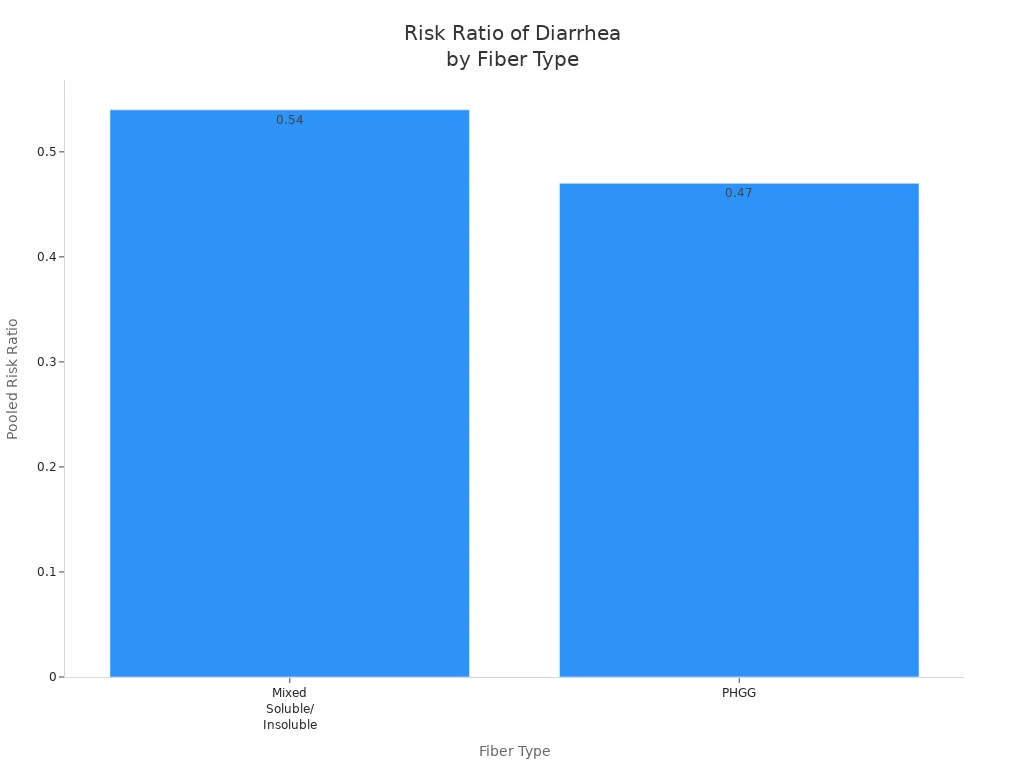
If you want to avoid digestive upset, try mixed fiber supplements or PHGG. These options support your gut health and microbiome without causing discomfort. Always start with a low dose and increase slowly to help your gut adjust. You can also support your digestive system by eating more fiber-rich foods as part of your diet.
Allergies and Restrictions
You need to check fiber supplement labels for allergens before you buy. The Food Allergy Labeling and Consumer Protection Act requires that the eight major allergens—milk, eggs, fish, crustacean shellfish, tree nuts, peanuts, wheat, and soybeans—must appear clearly on dietary supplement labels. You will find these allergens listed in the ingredient list or after a “contains” statement. This makes it easier to avoid products that could cause an allergic reaction.
You should always read the label carefully to spot allergens such as milk, eggs, fish, peanuts, soy, and gluten. Labels often include a “contains” statement or a section listing potential allergens. You need to check both the active ingredients and any additives, as allergens may be present in either. Some products also provide QR codes for more detailed ingredient information. Careful label reading helps you avoid allergic reactions and choose the best fiber supplement for your needs.
Tip: If you have food allergies or dietary restrictions, always double-check the label before adding a new fiber supplement to your routine.
Reading Labels
Reading fiber supplement labels helps you make smart choices for your health. You want to know exactly what you are taking and how it fits your needs. Labels can look confusing at first, but you can break them down into simple steps.
Start with the “Supplement Facts” panel.
This section shows you the serving size, amount per serving, and percent daily value. You can see how much fiber you get in each dose and how it fits into your daily needs.Check the ingredient list.
You will find both active ingredients (the fiber itself) and non-dietary ingredients, also called excipients. These might include fillers, sweeteners, or flavorings. Knowing what is in your supplement helps you avoid unwanted additives.Watch out for proprietary blends.
Some products group several ingredients together without listing exact amounts. This can hide how much of each fiber you are getting. You want clear information so you do not risk taking too much or too little.Understand label claims.
You might see words like “natural,” “healthy,” or “doctor recommended.” These terms are not always regulated. Only FDA-approved health claims have strict rules. Marketing terms can sound good but may not mean much.Look for third-party certifications.
Seals from groups like NSF, USP, or Non-GMO Project show that the product meets high standards. These certifications mean the supplement has been tested for quality, purity, and accurate labeling. If you are an athlete, look for NSF Certified for Sport to avoid banned substances.Check for allergen information.
The FDA requires labels to list the top eight allergens, such as peanuts, shellfish, soy, and wheat. Always read this section if you have allergies or sensitivities.Note expiration or manufacturing dates.
While not required, these dates help you choose a fresh product. Freshness can affect how well the supplement works.
Tip: The FDA does not review dietary supplements for safety or effectiveness before they reach stores. You should look for products that follow current Good Manufacturing Practices (cGMP) and have third-party testing. These steps help ensure your supplement is safe and contains what the label promises.
You can use this checklist every time you shop for a fiber supplement:
Review the Supplement Facts panel.
Read the full ingredient list.
Avoid products with vague proprietary blends.
Look for trusted certifications.
Check for allergens.
Choose products with clear expiration or manufacturing dates.
By reading labels carefully, you protect yourself from unwanted ingredients and low-quality products. You also make sure you get the right type and amount of fiber for your health goals. Taking a few minutes to check the label can make a big difference in your supplement experience.
Fiber and Gut Health

Benefits for Digestion
You support your digestive health every time you increase your fiber intake. Fiber plays a key role in your gut by helping food move smoothly through your digestive tract. Soluble fiber slows digestion, which helps control blood sugar and keeps you feeling full. Insoluble fiber attracts water into your stool, making it softer and easier to pass. This process helps prevent constipation and keeps your bowel movements regular.
Clinical research shows that fiber offers many digestive benefits. You can see these benefits in the table below:
Digestive Benefit | Description |
|---|---|
Modulation of Glycemic Response and Insulin Resistance | Fiber slows carbohydrate absorption, reduces blood sugar spikes, and lowers insulin resistance. |
Promotion of Satiety | Fiber increases fullness and reduces hunger, supporting weight management. |
Prebiotic Effects and Gut Microbiome Balance | Fiber feeds good bacteria, helping your microbiome thrive. |
SCFA Production and Colonocyte Support | Fiber fermentation produces butyric acid, which fuels colon cells and supports colon health. |
Alleviation of IBS Symptoms | Fiber, especially psyllium, reduces IBS symptoms safely. |
Prevention of Constipation and Diarrhea | Soluble fibers balance gut microbiota and improve bowel regularity. |
Neuroendocrine Signaling Influence | Fiber affects gut hormones that regulate digestion and appetite. |
Reduction of Colorectal Cancer Risk | Butyrate from fiber helps protect against colorectal cancer. |
You help your gut health and digestive system every time you choose foods or supplements rich in fiber.
Managing IBS and Bowel Issues
If you have irritable bowel syndrome (IBS) or other bowel issues, fiber can make a big difference. You may notice that not all fibers work the same way for your gut. Soluble, moderately fermentable fibers like psyllium show the best results for IBS. These fibers increase stool bulk, support your microbiome, and help regulate gut hormones. You can use fiber supplements to manage both constipation and diarrhea, depending on the type you choose.
You should start fiber slowly. A gradual increase—no more than 5 grams per week—helps your gut adjust and reduces bloating or discomfort. Insoluble fibers, such as wheat bran, may worsen IBS symptoms for some people. You may find that partially hydrolyzed guar gum (PHGG) and oats also support your digestive health, but more research is needed. Non-fermentable fibers like methylcellulose can help soften stools in constipation-predominant IBS.
Tip: Always listen to your body and adjust your fiber intake based on how your gut feels.
Supporting Overall Gut Health
You play a key role in your gut health by choosing the right fiber. Fiber acts as a prebiotic, feeding the beneficial bacteria in your gut microbiome. This process helps your microbiome stay balanced and strong. Most people in the United States do not get enough fiber, which can harm your gut health and digestive function.
When you increase your fiber intake, you help your gut produce short-chain fatty acids (SCFAs). These compounds reduce inflammation, support immune function, and lower your risk of chronic diseases like type 2 diabetes and heart disease. Fiber also helps with weight management by making you feel full and supporting healthy digestion.
Fiber supports a healthy microbiome, which is essential for gut health.
Soluble fiber slows digestion and improves glycemic control.
Insoluble fiber promotes regular bowel movements and prevents constipation.
Adequate fiber intake supports immune health and reduces inflammation.
Fiber helps with weight management by increasing satiety.
You can improve your gut health, digestive health, and overall well-being by making fiber a regular part of your diet. Your microbiome will thank you!
Fiber Supplement Benefits and Side Effects
Common Benefits
You can experience many benefits when you add fiber supplements to your daily routine. These supplements help you achieve regular bowel movements and support bowel regularity. Soluble, gel-forming fibers like psyllium work in your digestive tract to soften stool, increase water content, and make it easier to pass. You may notice relief from constipation and a more comfortable digestive process. Many people with irritable bowel syndrome find that fiber supplements help manage symptoms and improve digestive health.
Fiber supplements also play a role in weight management. They slow down how your body absorbs nutrients, which helps you feel full for longer. This feeling of fullness can help you eat less and support your weight management goals. Fiber supports your gut health by feeding your microbiome. A healthy microbiome leads to better digestive function and overall well-being. Insoluble fiber provides mechanical stimulation in your gut, which can help relieve constipation and keep your digestive system moving.
Tip: Gradually introduce fiber supplements to your diet. This approach helps your digestive system adjust and improves long-term success.
Possible Side Effects
Most people tolerate fiber supplements well, but you may notice some digestive side effects, especially when you first start. These side effects often include:
Gas and bloating, which are common with insoluble fiber supplements
Abdominal discomfort or cramping
Diarrhea, especially if you use supplements with sorbitol or take too much fiber at once
Nausea or mild vomiting
Feeling overly full or having loose stools
You can reduce these digestive symptoms by increasing your fiber intake slowly and drinking plenty of water. Some fiber supplements, such as psyllium, can cause choking if you do not drink enough fluids. Always take fiber supplements with a full glass of water to support bowel regularity and avoid problems. Rarely, serious side effects like bowel obstruction or severe abdominal pain can occur, especially if you have a history of digestive issues.
Side Effect | How to Minimize Risk |
|---|---|
Gas/Bloating | Start with a low dose, increase slowly |
Diarrhea | Avoid high doses, check for sorbitol |
Choking | Always drink plenty of water |
Abdominal Pain | Monitor symptoms, seek help if severe |
When to Seek Help
You should know when to contact a healthcare provider while using fiber supplements. Watch for these warning signs:
Rectal bleeding or blood in your stool
Choking, chest pain, or trouble swallowing after taking fiber
Severe vomiting or nausea
Sudden, unexplained abdominal pain
A sudden change in bowel habits that lasts more than two weeks
Signs of a serious allergic reaction, such as rash, swelling of the face or throat, or trouble breathing
If you notice any of these symptoms, stop using the supplement and seek medical help right away. These signs may indicate a serious digestive problem or a reaction that needs prompt attention. Always listen to your body and talk to your doctor if you have concerns about your digestive health, gut health, or the effects of fiber supplements on your microbiome.
Tips for Safe Use
How to Start
Starting a fiber supplement safely helps you get the most benefits while avoiding discomfort. You should follow these steps to make your experience positive:
Take your fiber supplement every day. Consistency matters more than the exact time you take it.
Begin with a small dose. Increase the amount slowly over several days or weeks. This gradual approach helps your digestive system adjust and reduces the risk of gas or bloating.
Talk to your healthcare provider before starting. This is especially important if you have digestive conditions like diverticular disease or diverticulitis.
Avoid fiber supplements during active diverticulitis. Wait until inflammation has resolved before restarting.
Choose high-quality products. Look for supplements certified by organizations such as NSF, USP, or ConsumerLab.
Space your fiber supplement away from certain medications. Take medicines like warfarin, antibiotics, metformin, or acetaminophen at least one hour before or two hours after your fiber supplement.
Adjust timing for your goals. If you want to manage weight, you can take fiber before meals. For blood sugar control, take it with meals. However, daily consistency is most important.
Tip: Always read the instructions on your supplement label for the best results.
Importance of Hydration
Drinking enough fluids is essential when you use fiber supplements. Fiber needs water to work properly in your digestive system. Without enough water, fiber can cause constipation or stomach discomfort. Experts recommend at least 64 ounces (about eight glasses) of water each day. If you are active or live in a hot climate, you may need even more.
Clinical studies show that people who drink 1.5 to 2.0 liters of water daily with fiber supplements have more regular bowel movements and need fewer laxatives. Water helps fiber soften your stool and makes it easier to pass.
Here is a quick guide to daily fluid needs by age and gender:
Age Group | Fluid Intake (Ounces/Day) | Fluid Intake (Cups/Day) | Notes on Fluid Types and Recommendations |
|---|---|---|---|
1-3 years | 45-50 | 5.5-6 | Water is best; juice and milk in limited amounts |
4-8 years | 55-60 | 7-7.5 | 100% fruit juice limited; milk recommended low-fat |
9-13 years | Males: 80-85; Females: 70-75 | Males: 10-10.5; Females: 8.5-9 | Juice and milk guidelines apply; avoid soda/energy drinks |
18+ years | Males: 100-110; Females: 75-80 | Males: 12.5-14; Females: 9.5-10 | Sports drinks only for prolonged vigorous activity |
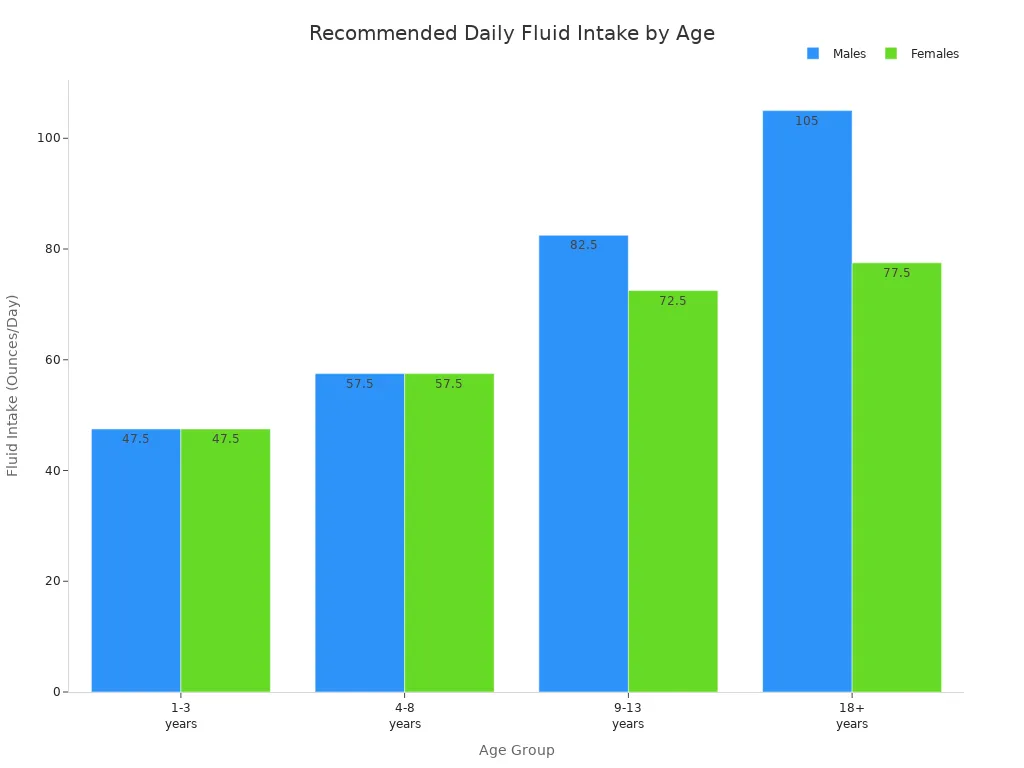
Water is the best choice for hydration. It helps fiber do its job and keeps your digestive system healthy.
Avoiding Side Effects
You can reduce the risk of side effects from fiber supplements by following a few simple strategies:
Start with a small dose and increase slowly. This helps your body adjust and lowers the chance of bloating, gas, or cramping.
Drink at least 8 ounces of water with every dose of fiber. Adequate hydration prevents choking and helps fiber move through your digestive tract.
Take fiber supplements exactly as instructed on the label.
Avoid fiber supplements if you have trouble swallowing, a narrowed esophagus, or a history of bowel blockages.
Do not take fiber supplements within two hours of other medications. This prevents interference with drug absorption.
Choose supplements without added sugar if you have diabetes, or without sodium if you are on a low-sodium diet.
Stop using the supplement and contact your doctor if you experience vomiting, chest discomfort, trouble swallowing, or breathing problems.
Use fiber supplements as a support for a healthy diet, not as your only source of fiber.
Listening to your body and making gradual changes will help you get the most from your fiber supplement while avoiding unwanted effects.
Monitoring Your Response
You play an important role in making fiber supplements work for you. Paying attention to your body helps you get the most benefits and avoid unwanted effects. Start by tracking your daily fiber intake. Aim for a total of 25 to 30 grams of fiber each day from both food and supplements. You can use a food diary or a simple note on your phone to keep track.
Watch for changes in how you feel. Your body will give you signals if you need to adjust your fiber intake. Here are some signs to monitor:
Bloating or a feeling of fullness that does not go away
Increased gas or flatulence
Changes in your bowel movements, such as diarrhea or constipation
Stomach cramps or discomfort
Tip: If you notice any of these symptoms, slow down your fiber increase. Give your digestive system time to adjust.
A gradual increase in fiber works best. Add a small amount every few days instead of making big changes all at once. This approach helps your gut bacteria adapt and reduces the chance of discomfort.
If you experience too much bloating or digestive distress, you can take simple steps to feel better:
Drink extra water throughout the day
Take a short walk after meals to help digestion
Temporarily avoid high-fiber foods until symptoms improve
Most mild symptoms will fade as your body gets used to more fiber. However, some signs mean you should adjust or stop your supplement:
Persistent or severe bloating
Ongoing digestive distress that affects your daily life
Excessive gas that does not improve with time
If these problems continue, consider lowering your dose or taking a break from the supplement. You can also try a different type of fiber that may be easier on your system.
Note: Always listen to your body. If you feel uncomfortable or unsure, talk to your healthcare provider for advice.
By monitoring your response, you can find the right balance for your digestive health. This careful approach helps you enjoy the benefits of fiber while avoiding unwanted side effects.
You have many options when it comes to fiber supplements. Research shows that different types of fiber offer unique benefits, such as lowering cholesterol or improving digestion. Some people may experience mild side effects, so start slowly and drink plenty of water. Always choose a supplement that fits your needs and talk to your doctor if you have health concerns. Paying attention to your body helps you get the most from fiber and supports your overall health.
FAQ
Can you take fiber supplements every day?
Yes, you can take fiber supplements daily. Most people tolerate them well. Start with a low dose and increase slowly. Drink plenty of water to help your body adjust and avoid discomfort.
Do fiber supplements cause weight gain?
No, fiber supplements do not cause weight gain. They help you feel full, which may reduce overeating. Fiber itself contains very few calories. You can use fiber supplements as part of a healthy weight management plan.
What is the best time to take a fiber supplement?
You can take fiber supplements at any time. Many people prefer taking them with meals to help with fullness and blood sugar control. Consistency matters more than timing. Always follow the instructions on your supplement label.
Can you take fiber supplements with other medications?
You should separate fiber supplements from medications by at least one to two hours. Fiber can affect how your body absorbs some drugs. Check with your doctor or pharmacist if you take prescription medicines.
Are fiber supplements safe for kids and teens?
Most fiber supplements are safe for children and teens when used as directed. Start with a small dose and increase slowly. Always talk to your child’s doctor before starting a supplement.
What should you do if you feel bloated or gassy?
Start with a lower dose and increase slowly. Drink extra water. If symptoms continue, try a different type of fiber or take a break. Your body often adjusts over time.
Can you use fiber supplements if you have food allergies?
You can use fiber supplements if you have food allergies, but always check the label for allergens. Look for products labeled “free from” your specific allergens. If you have concerns, ask your doctor for advice.
How much fiber should you get each day?
Age Group | Daily Fiber Goal |
|---|---|
Adults | 25–30 grams |
Children 4–8 | 17–20 grams |
Teens 9–18 | 22–25 grams |
You can meet your goal with a mix of food and supplements.
